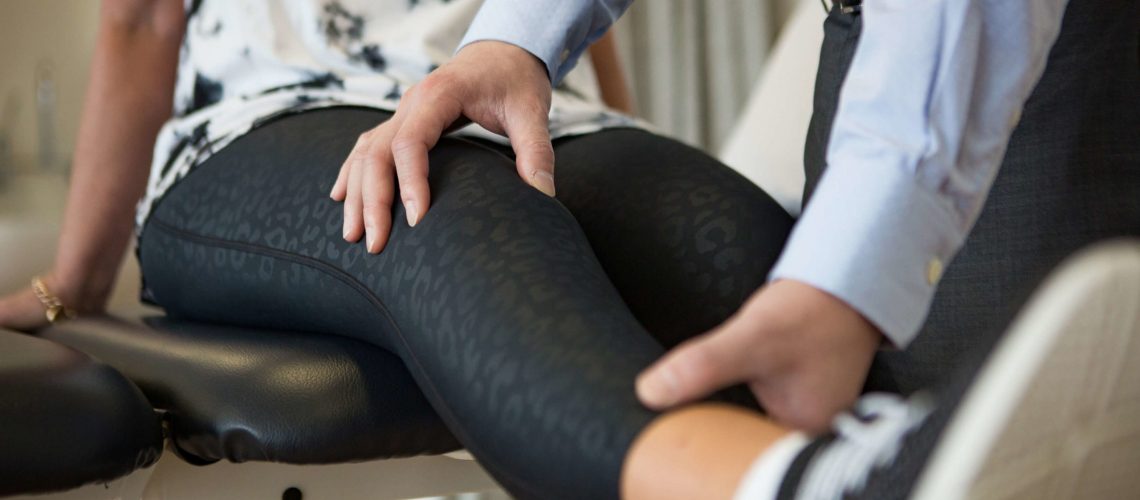Why does my knee hurt after exercise?
There are lots of reasons why your knee may hurt after exercise, and sometimes it can be quite difficult to pinpoint. A good place to start is where exactly the knee is sore. Most commonly in runners and jumpers, the knee can hurt at the front which might suggest a patella tendon, quads tendon or patella cartilage issue. If the knee hurts on the sides, it could be a ligament or meniscus tear, or even arthritis. If the knee hurts at the back, then sometimes this could be muscle or tendon tears, or a Baker’s cyst.
What exercises are good for my knee?
Exercises that keep your knee strong, whilst minimising impact are the best for you knee. Rowing, cycling and swimming are great knee exercises. Squats, leg press and knee extensions can be modified if they hurt to not dip too deep whilst still keeping the muscles around the knee strong which are essential for knee health. Sadly, running and jumping are not great for knees in general, as these cause high, repeated impacts to the structures of the knees which can injure them.
My knee hurts! Now what?
Pain and swelling is not good, and you should try to rest the knee. Elevate the knee, ice it, and try some compression bandages. Take a break from that particular exercise while the knee is sore, and try again a week later. If it has not improved in a week, then you should seek the advice of your local doctor or physiotherapist.
What things should I watch out for?
Marked swelling, new onset clicking, locking or the knee giving way, as well as a feeling of instability are all things of concern, and professional help should be sought earlier rather than later. Your health professional may decide to send you for an MRI scan which can help diagnose your problem.
Do I need to see an orthopaedic surgeon?
Not all injuries require you to see an orthopaedic surgeon. Be guided by your physiotherapist and your local doctor. Some injuries like muscle and tendon sprains or degeneration are treated very effectively by physiotherapists and sports physicians. Other things like ligament tears, such as an ACL tear, or meniscus tears would benefit from a visit to an orthopaedic surgeon for an opinion.

